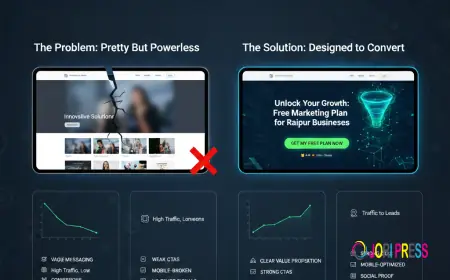Body Care Products Market to Reach New Heights
The Global Body Care Products Market is growing due to rising consumer awareness of personal grooming, growing demand for natural and organic products, and increasing disposable incomes.

Industry Overview
The global body care products market is undergoing a transformative evolution, shaped by changing consumer lifestyles, increasing awareness about personal well-being, and innovation-driven product development. In 2024, the market stood at USD 16.42 billion, and it is projected to reach USD 22.42 billion by 2030, growing at a CAGR of 5.33% during the forecast period.
No longer limited to basic hygiene, body care products today form an integral part of daily wellness routines. Consumers are looking for products that provide nourishment, protection, rejuvenation, and holistic skincare. This heightened demand is encouraging companies to bring out multifunctional products that blend science, nature, and beauty.
From body moisturizers, soaps, and body washes to creams and oils tailored for hydration, brightening, or anti-aging—body care is no longer a one-size-fits-all solution. With consumers paying closer attention to ingredients, functionality, sustainability, and brand values, the global market is seeing an upswing in innovation, segmentation, and personalization.
Industry Key Highlights
-
Market Size (2024): USD 16.42 Billion
-
Projected Market Size (2030): USD 22.42 Billion
-
Compound Annual Growth Rate: 5.33%
-
Dominant Distribution Channel: Supermarkets & Hypermarkets
-
Fastest Growing Region: North America
-
Top Trends: Sustainability, AI-based personalization, multifunctional products
-
Top Companies: L’Oréal SA, Unilever PLC, Johnson & Johnson Services Inc., Procter & Gamble, Estée Lauder Companies
Download Free Sample Report - https://www.techsciresearch.com/sample-report.aspx?cid=29488
Emerging Trends in the Global Body Care Products Market
1. Rise of Clean and Green Beauty
One of the most influential trends shaping the body care industry is the rise of natural and organic products. Clean beauty is no longer just a niche segment; it’s a mainstream movement. Consumers are rejecting synthetic chemicals, parabens, sulfates, and artificial fragrances in favor of plant-based, ethically sourced, and sustainably produced ingredients. The focus on transparency has also led brands to be more open about ingredient sourcing, production processes, and environmental footprints.
2. Multifunctional Formulations
Modern consumers are seeking multitasking products that save time and offer multiple benefits in one application. Whether it’s a moisturizer with SPF and anti-aging ingredients or a body wash with exfoliating and hydrating properties, multifunctionality is in high demand. These products are especially appealing to fast-paced urban consumers who prioritize efficiency without compromising on quality.
3. Personalization with Technology
Technology is revolutionizing skincare and body care through personalized recommendations powered by AI and machine learning. Brands are leveraging online quizzes, apps, and even AI tools that analyze skin type, climate, and lifestyle to suggest tailor-made product regimens. This enhances customer satisfaction, trust, and loyalty, while enabling companies to collect valuable data for R&D.
4. Ethical and Cruelty-Free Practices
The demand for cruelty-free, vegan, and fair-trade products is growing exponentially. Consumers—especially Millennials and Gen Z—are making buying decisions based on ethical alignment. Certifications like Leaping Bunny, Vegan Society, and Fair Trade are becoming essential for brand credibility and market competitiveness.
5. Integration of Wellness in Skincare
The lines between skincare and wellness continue to blur. Body care products are now infused with therapeutic ingredients like CBD, essential oils, adaptogens, and vitamins aimed at reducing stress, improving sleep, or boosting energy. This holistic approach ties into the broader health and well-being trend, creating opportunities for cross-industry innovation.
Market Drivers
1. Growing Awareness of Skin Health
Heightened awareness about skin conditions, aging, sun exposure, and pollution-related damage is prompting consumers to invest in targeted body care products. There is a strong push towards preventive care, rather than reactive treatment, which favors the regular use of moisturizing, exfoliating, and sun-protecting products.
2. Digital Transformation and E-commerce Growth
E-commerce has transformed the way consumers shop for body care products. Online platforms provide easy access, in-depth product information, tutorials, user reviews, and AI-driven recommendations, facilitating informed purchases. Moreover, social media influencers and user-generated content create powerful brand narratives, especially among younger users.
3. Rising Disposable Income
In developing economies, rising middle-class populations with greater disposable incomes are boosting demand for premium body care products. Consumers are willing to spend more on brands that offer superior ingredients, packaging, and brand experiences.
4. Urbanization and Changing Lifestyles
Fast-paced urban lifestyles have increased the demand for quick, convenient, and effective personal care solutions. Consumers are increasingly prioritizing self-care, creating a robust market for products that fit into their daily routines and deliver visible results.
5. Expansion of Male Grooming Segment
The male grooming industry is no longer limited to shaving and deodorants. Men are now investing in moisturizers, body scrubs, and skincare treatments, driven by changing cultural norms and greater awareness of skincare benefits.
Segmental Analysis
By Product Type
-
Moisturizers remain a core category, widely used for hydration and skin repair.
-
Body Wash and Soaps are evolving from basic cleansers to skincare-focused formulations enriched with botanical extracts and vitamins.
-
Body Creams and Oils are gaining popularity due to their intensive nourishment and suitability for dry or aging skin.
-
Others include exfoliants, serums, and masks targeting specific body areas.
By Distribution Channel
-
Supermarkets & Hypermarkets: Dominate the market thanks to their large customer base, promotional campaigns, and one-stop shopping convenience.
-
Online Channels: Fastest-growing, driven by digital convenience, influencer marketing, and direct-to-consumer (DTC) models.
-
Departmental Stores: Preferred for premium and luxury body care brands, especially those offering in-store consultations.
-
Others: Include pharmacies, salons, and specialty stores.
Regional Analysis
North America: The Fastest Growing Region
North America is witnessing robust growth in the body care products market, supported by:
-
Rising demand for therapeutic and natural ingredients.
-
High penetration of online retail and digital tools for product personalization.
-
Increased adoption of clean and ethical beauty standards.
-
Cultural emphasis on self-care and wellness routines.
The combination of strong purchasing power, high internet penetration, and a sophisticated consumer base makes North America a key driver of global innovation and adoption.
Competitive Landscape
Top Players in the Global Body Care Products Market
The market is highly competitive and fragmented, featuring both multinational giants and emerging niche players. The top companies include:
-
Beiersdorf AG – Known for its NIVEA range, offering reliable skincare solutions globally.
-
Procter & Gamble Company – Offers a wide range of personal care products under multiple brands.
-
Unilever PLC – Its Dove and Vaseline lines dominate body care across various regions.
-
Colgate-Palmolive Company – Continues to expand its personal care portfolio through innovation.
-
Johnson & Johnson Services Inc. – Offers dermatologist-recommended solutions with a science-first approach.
-
L’Oréal SA – Leverages research and marketing to cater to premium and mass segments.
-
Natura &Co – Strong in sustainability and ethical sourcing.
-
Oriflame Cosmetics Global SA – Direct-selling giant with a growing digital footprint.
-
The Estée Lauder Companies Inc. – Focuses on luxury skincare through brands like Aveda and Origins.
These players continuously invest in R&D, marketing, and global expansion to maintain and grow their market share.
10 Benefits of the Research Report
-
Comprehensive Market Insights – Offers detailed analysis of market size, segments, and forecast.
-
Competitive Landscape – Profiles major players and identifies strategies driving success.
-
Trend Identification – Tracks emerging consumer, product, and marketing trends.
-
In-depth Regional Analysis – Highlights growth opportunities across regions.
-
Segment-Level Forecasts – Enables strategic planning based on product and channel performance.
-
Consumer Behavior Insights – Helps understand evolving preferences and buying behavior.
-
Opportunities and Challenges – Pinpoints market gaps and future challenges.
-
Technological Impact Analysis – Explains the role of digital transformation in market growth.
-
Regulatory Overview – Summarizes regulations affecting product development and marketing.
-
Investment Planning Tool – Assists stakeholders in making informed decisions on expansion and innovation.
Future Outlook
The global body care products market is poised for sustained growth through 2030 and beyond. As consumers continue to prioritize health, sustainability, and customization, brands will need to adopt agile strategies to stay competitive.
Looking ahead:
-
Sustainability will no longer be optional—it will be essential. Refillable packaging, biodegradable formulas, and carbon-neutral processes will drive consumer loyalty.
-
AI and Machine Learning will personalize customer journeys and optimize product development.
-
Emerging Markets in Asia-Pacific, Latin America, and Africa will become hotbeds of growth due to demographic advantages and rising incomes.
-
Men’s Skincare and Aging Population Segments will receive increased focus, with specially tailored solutions.
-
Cross-Industry Collaborations, such as tech + beauty or wellness + skincare, will create new, hybrid product categories.
In conclusion, the global body care market is no longer just about appearance; it's about self-care, identity, health, and values. Companies that recognize and embrace this transformation will shape the future of the industry.
Contact Us-
TechSci Research LLC
420 Lexington Avenue, Suite 300,
New York, United States- 10170
M: +13322586602
Website: www.techsciresearch.com
What's Your Reaction?
 Like
0
Like
0
 Dislike
0
Dislike
0
 Love
0
Love
0
 Funny
0
Funny
0
 Angry
0
Angry
0
 Sad
0
Sad
0
 Wow
0
Wow
0



















































